On 25 November 2023 the expanded Employer-Sponsored Pathways to Permanent Residence came into effect with regards to the following:
- Temporary Skill Shortage (subclass 482) (TSS) visa
- Temporary Residence Transition stream (TRT) of the Employer Nomination Scheme (subclass 186) (ENS) and Regional Sponsored Migration Scheme (subclass 187) (RSMS) visa subclasses.
Who will these changes apply to?
The TSS visa
Changes to the TSS Visa will apply to new applications lodged on or after 25 November 2023.
Changes to the TRT stream nomination requirements apply to all new ENS/RSMS nomination applications and applications that are not yet finally determined as of 25 November 2023.
Restrictions on the number of onshore TSS Visas for those on the Short-term stream have been removed. Individuals seeking to apply for a third or Subsequent Short-term stream TSS visa can do so from within the country.
The TRT stream of the ENS and RSMS visa subclasses
Changes to nomination requirements for the TRT stream of the ENS and RSMS Visa subclasses:
- Employers are able to nominate holders of all TSS visa streams, including visa holders with occupations in the Short–term and Labour Agreement streams;
- The period in which TSS visa holders are required to have worked in a position with their sponsoring employer (or in the occupation for medical practitioners and certain executives) has been reduced to 2 out of the 3 years before nomination;
- The RSMS visa continues to be restricted to transitional 457 workers and transitional 482 workers;
- Nominated occupations are no longer assessed against Skilled Migration Occupation Lists;
- The nominated occupation needs to be listed in the Australian and New Zealand Standard Classification of Occupations (ANZSCO) and the nominated worker must continue to work in the occupation nominated for their TSS visa(s);
- Age exemptions for regional medical practitioner applicants and high-income earning applicants aged 45 years and over have been reduced to 2 out of the 3 years before nomination;
- COVID-19 related exemptions have ended.
Relevant Legislation
Definition of Subclass 457/482 Worker
Migration Amendment (Expanding Access to Temporary Residence Transition Stream) Regulations 2023 makes the required amendments to the Regulations to give effect to the changes that expand pathways to permanent residence for TRT stream SC 482 and 457 skilled workers.
This instrument amends:
- Reg 5.19 to expand access to the TRT streams of the Subclass 186 or 187 visas for all holders of SC 482 and SC 457 visas, regardless of the stream in which their visa is held;
- reduce the length of the eligibility period that is required for approval of a nomination in the TRT stream eligibility period, from 3 years in 4 years, to 2 years in 3 years;
- remove the requirement for the occupation identified in the nomination to be on the MLTSSL or the ROL, ensuring that applicants under the TRT stream are not disadvantaged if their occupation is removed from the relevant occupation list;
- extends the permission to allow all employers including parties to a work agreement who sponsored a worker under a labour agreement, to make a nomination under the TRT stream;
- removes the limit on the number of Subclass 482 visa applications in the Short term stream that can be made in Australia.
This Instrument commenced on 25 November 2023.
Amendments to Temporary Residence Transition stream
Migration Legislation Amendment (Expanding Access to Temporary Residence Transition Stream) Instrument (LIN 23/078) 2023 has been released to complement the amendments to the Migration Regulations that will give effect to the changes to provide access to permanent residency for an expanded cohort of Subclass 482 and certain Subclass 457 visa holders.
These amendments are made primarily through changes to Subregulation 5.19 and Schedule 2 Subclass 186 and 187 regulations and commences on 25 November 2023.
The amendment amends two instruments in the following manner.
Age Requirement for Subclass 457/482 Worker
LIN 19/216: Exemptions from Skill, Age and English Language Requirements for Subclass 186, 187 and 494 Visas 2019 is amended to:
* alter the definition of Subclass 457/482 worker to reduce the period of time the applicant must have worked for the employer who made the nomination from 3 years to 2 years in the last 3 years, immediately before application for a Subclass 186 or 187 visa
* alter the definition of the Subclass 457/482 worker who is not required to meet the age requirement because they meet the FWHIT is reduced from 3 years to 2 years employment
Regional Medical Practitioner Applicant
* alter the definition of regional medical practitioner applicant to reduce the period the applicant is required to have been employed as a medical practitioner in a regional areas from 3 years to 2 years;
Removal of COVID-Related Concessions
* remove references to COVID related concessions exemptions as redundant.
Removal of bars on application under TRT
Migration (LIN 19/049: Specification of Occupations and Assessing Authorities—Subclass 186 Visa) Instrument 2019 is amended to:
* remove Subsection Part 2,6(1) which currently specifies the requirement to have an occupation on the Medium and Long term Strategic Skills List for the TRT stream and other references to that subsection.
This Instrument will continue unchanged for the Direct Entry Stream
While these changes will increase access to permanent residency for temporary skilled workers, the migration program planning levels will not change for the 2023/24 program year.
As these changes increase access to permanent residency for temporary skilled visa holders, there is likely to be a surge of applications, which in turn will impact the Department of Home Affairs processing times.
While the Department of Home Affairs has continued to uplift staff capacity and capability, implementing new policy settings, and streamlining processes, processing times may increase.
Need help? Augustine & Co. Immigration Lawyers can assist.
Please contact our Team of immigration specialists at Augustine & Co. should you require professional assistance with any aspects of the changes, which have expanded employer-sponsored pathways to permanent residency.
Author
Calvin Augustine is the founding solicitor of Augustine & Co. Immigration Lawyers. He graduated with Honors from the University of London law school, before being admitted to practice in Malaysia and Australia (admitted in SA, appears in all Victorian Courts and Tribunals, at trial and appellate levels).




